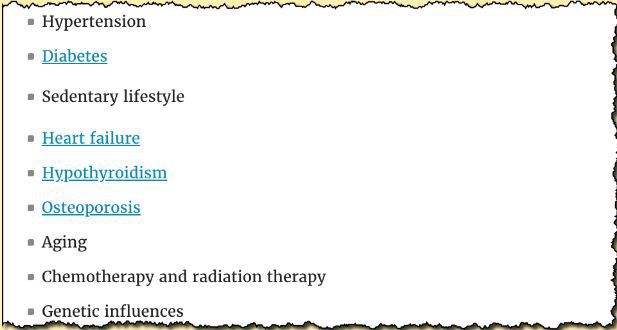
[cmamad id=”19046″ align=”center” tabid=”display-desktop” mobid=”display-desktop” stg=””]
Doctors are getting this wrong…and this confusion is causing millions of men to suffer “down there”
——Important Message——
Endothelial dysfunction…?
If you’re experiencing these symptoms, there’s a quick way to fix them and get your estrogen under control:

You see, with endothelial dysfunction, the linings of the penile chambers and the linings of the blood vessels get inflamed and stop working well.
Fortunately, a few simple ingredients stop endothelial problems COLD…
These ingredients will give you a firmer, harder belly… Bigger, sculpted muscles… And you don’t have to work out!
And suddenly you’re noticing huge improvements, massive improvements in your sexual function, and the ladies are noticing…

And it results in rocketing testosterone levels too.
———————-
Anti-Alzheimer’s vitamin could boost memory without side effects
We have known for decades that vitamin A helps with many health problems.
And it especially helps with low testosterone and other male problems – these can perk up with sufficient vitamin A.
But some poorly designed studies have pushed vitamin A out of the mainstream.
That’s because many people within the medical and nutritional establishments have confused vitamin A with another nutrient called beta-carotene.
But in the last few years, some good research has been done with real vitamin A.
People with Alzheimer’s are more likely to have low levels of vitamin A.
When mice develop Alzheimer’s-like symptoms, they improve with vitamin A supplementation.

These scientists coordinated their research through the Children’s Hospital of Chongqing Medical University in China. They published their results in the medical journal Acta Neuropathologica.
The study combined two major investigations – one in humans and the other in mice.
The human study enrolled 330 participants living in elderly care centers in China.
The researchers examined the participants for signs of cognitive decline and Alzheimer’s disease.
[cmamad id=”19047″ align=”center” tabid=”display-desktop” mobid=”display-desktop” stg=””]
Previous research showed that vitamin A deficiency can affect mental function.
But science hadn’t fully investigated the link between vitamin A deficiency and Alzheimer’s.
“Vitamin A deficiency has been shown to affect cognitive functions.”
Furthermore, the researchers also assessed the participants for their vitamin A status and categorized them as having either:
- Sufficient vitamin A
- Marginal vitamin A deficiency
- Vitamin A deficiency
While clear vitamin A deficiency is relatively rare, there is a grey area called marginal vitamin A deficiency and lots of people fit into that category.
This is a level between sufficiency and insufficiency – and it is a growing problem.
“Marginal vitamin A deficiency is a serious and widespread public health problem.”
So the study also looked at the relationship between marginal vitamin A deficiency and Alzheimer’s.
“The role of marginal vitamin A deficiency in the pathogenesis of Alzheimer’s disease remains elusive.”
Marginal vitamin A deficiency was much more common than clear vitamin A deficiency.
“Marginal vitamin A deficiency is approximately twice as prevalent than vitamin A deficiency in the elderly.”
According to the study results, lower levels of vitamin A are associated with decreased mental function.
“Increased cognitive decline is correlated with lower vitamin A-levels.”
Our brain function decreases slightly with age. That is cognitive decline.
But, with some people, this occurs much more rapidly.
And that is often associated with Alzheimer’s disease.
The scientists then moved on to animal experiments.
Low levels of vitamin A increased the spread of Alzheimer’s plaques in the experimental animals.
Low vitamin A was also associated with poor memory.
“Marginal vitamin A deficiency promoted amyloid beta production and accelerated memory deficits in Alzheimer’s mice.”
In one experiment, they gave these Alzheimer’s type mice vitamin A supplements.
Vitamin A supplements significantly improved Alzheimer’s symptoms in the mice afflicted with Alzheimer’s.
“Supplementing a therapeutic dose of vitamin A rescued marginal vitamin A deficiency-induced memory deficits.”
Even a marginal vitamin A deficiency could increase the risk of Alzheimer’s or cognitive decline.
“Our study demonstrates that marginal vitamin A deficiency facilitates Alzheimer’s progression.”
The research shows that correcting a vitamin A deficiency can improve mental performance.
“We demonstrated that vitamin A supplementation improves cognitive deficits.”
The combined results indicate that vitamin A may have a role in the prevention and treatment of Alzheimer’s and cognitive decline.
“These results suggest that vitamin A supplementation might be a potential approach for Alzheimer’s disease prevention and treatment.”
Vitamin A supplementation is quite controversial because there have been some large studies that have shown negative effects or no effects.
But many of these analyses included beta-carotene, which is not the same thing as vitamin A.
Supplementing large amounts of fat-soluble vitamins – such as vitamin A – can cause imbalances with the other fat-soluble vitamins.
For most people, getting more vitamin A from food is the best option.
Beef liver is the best source of vitamin A.
10-12 ounces of beef liver per week provides a significant amount of real vitamin A.
You should always consult a healthcare professional about treating and diagnosing health problems.
—–Important Message——
Can a supplement make a man into a total stallion? Can this supplement make your penis bigger? Make you stronger? Better in bed?
I wanted a supplement that could make me a little bigger down there…
Plus, I wanted bigger loads. I wanted to impress my girl. And also, I wanted to get more and bigger erections to impress her.
After a lot of research, I found that there actually is a way to use a few supplements that can make a man bigger and better.
—————

- Marginal vitamin A deficiency facilitates Alzheimer’s pathogenesis
https://link.springer.com/article/10.1007/s00401-017-1669-y
- Prevalence of Vitamin A Deficiency in South Asia: Causes, Outcomes, and Possible Remedies
https://www.ncbi.nlm.nih.gov/pmc/articles/PMC3905635/ - Chapter 4 ViTAMiN A DEFiCiENCy - World Health Organization
http://citeseerx.ist.psu.edu/viewdoc/download;jsessionid=10EF3436A4491CFB1CB333BDFF4B2B71?doi=10.1.1.177.8911&rep=rep1&type=pdf

Leave a Reply